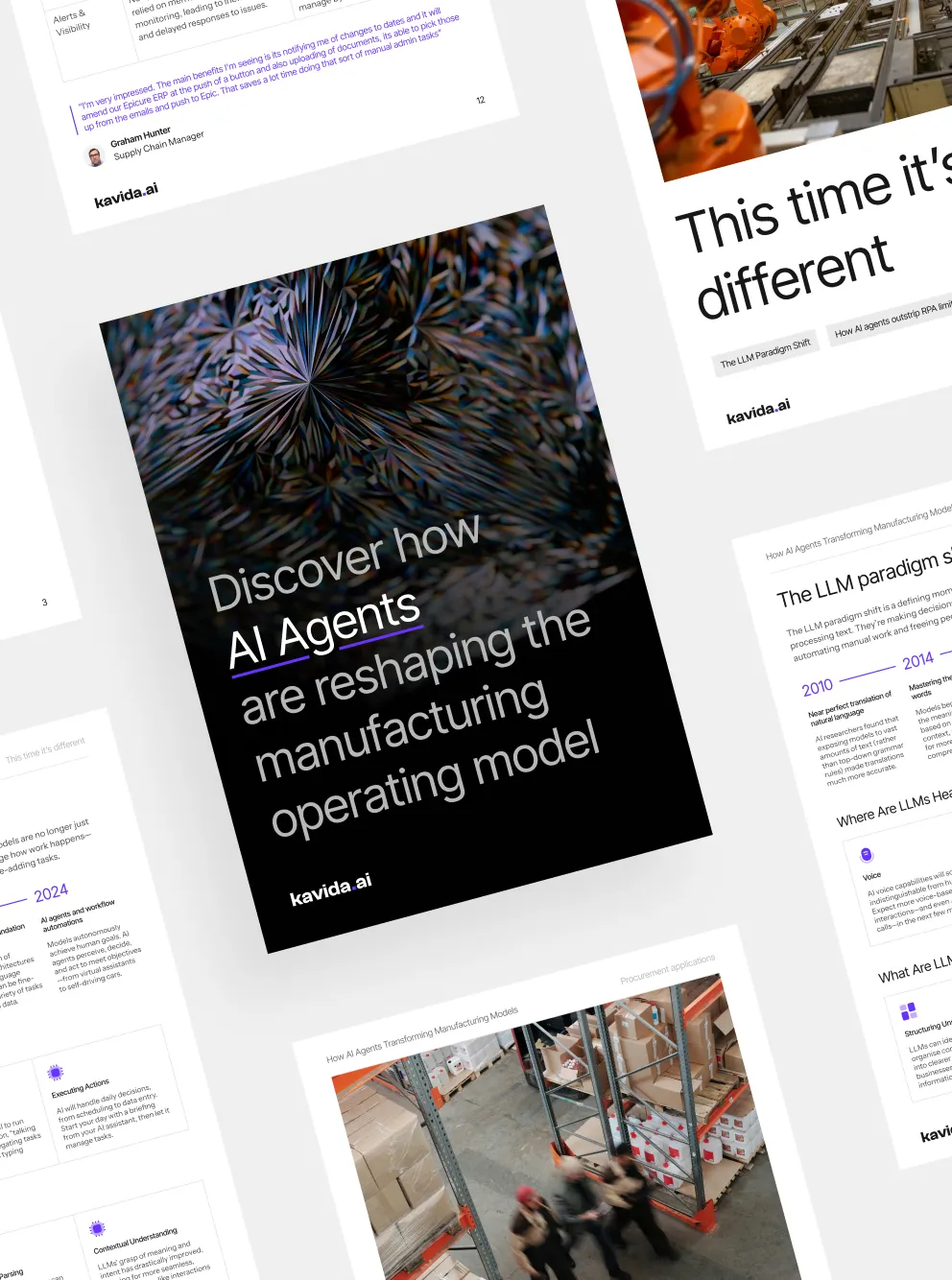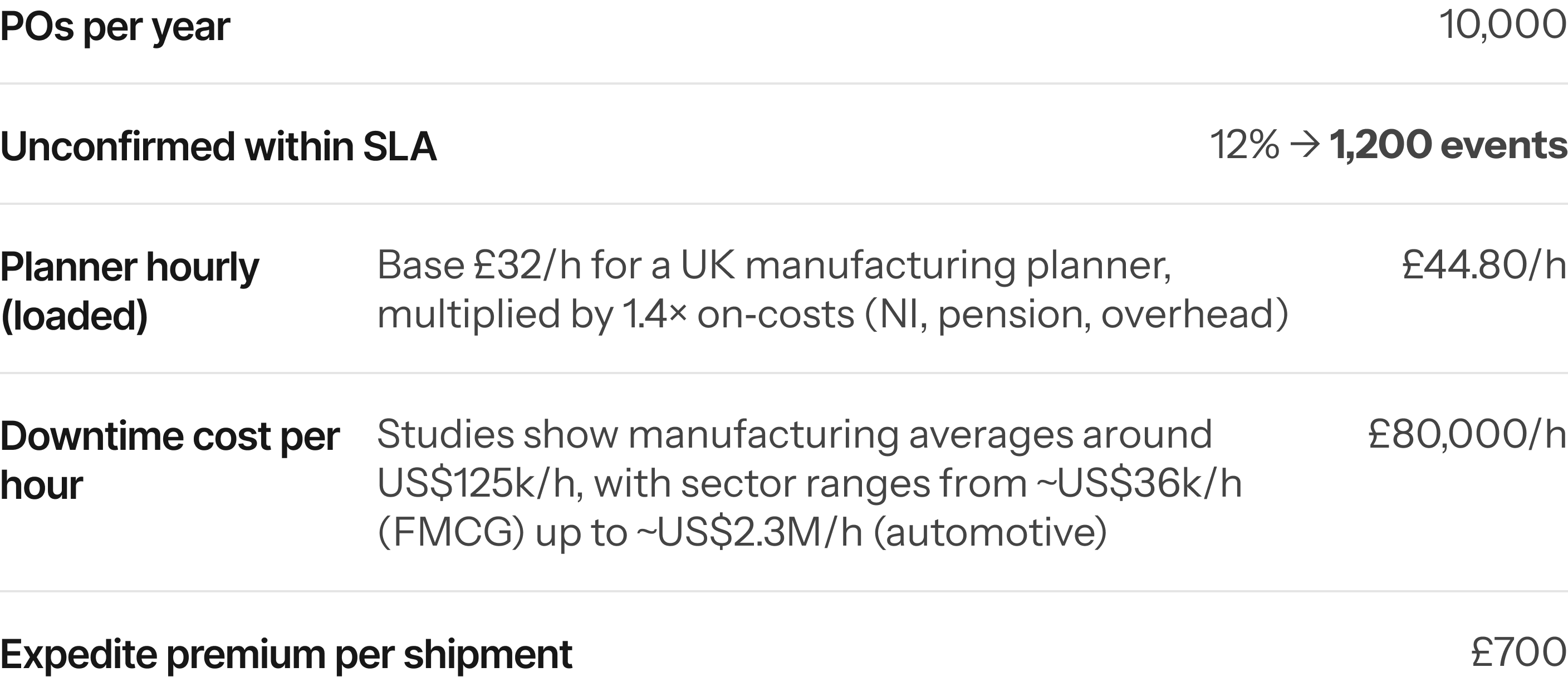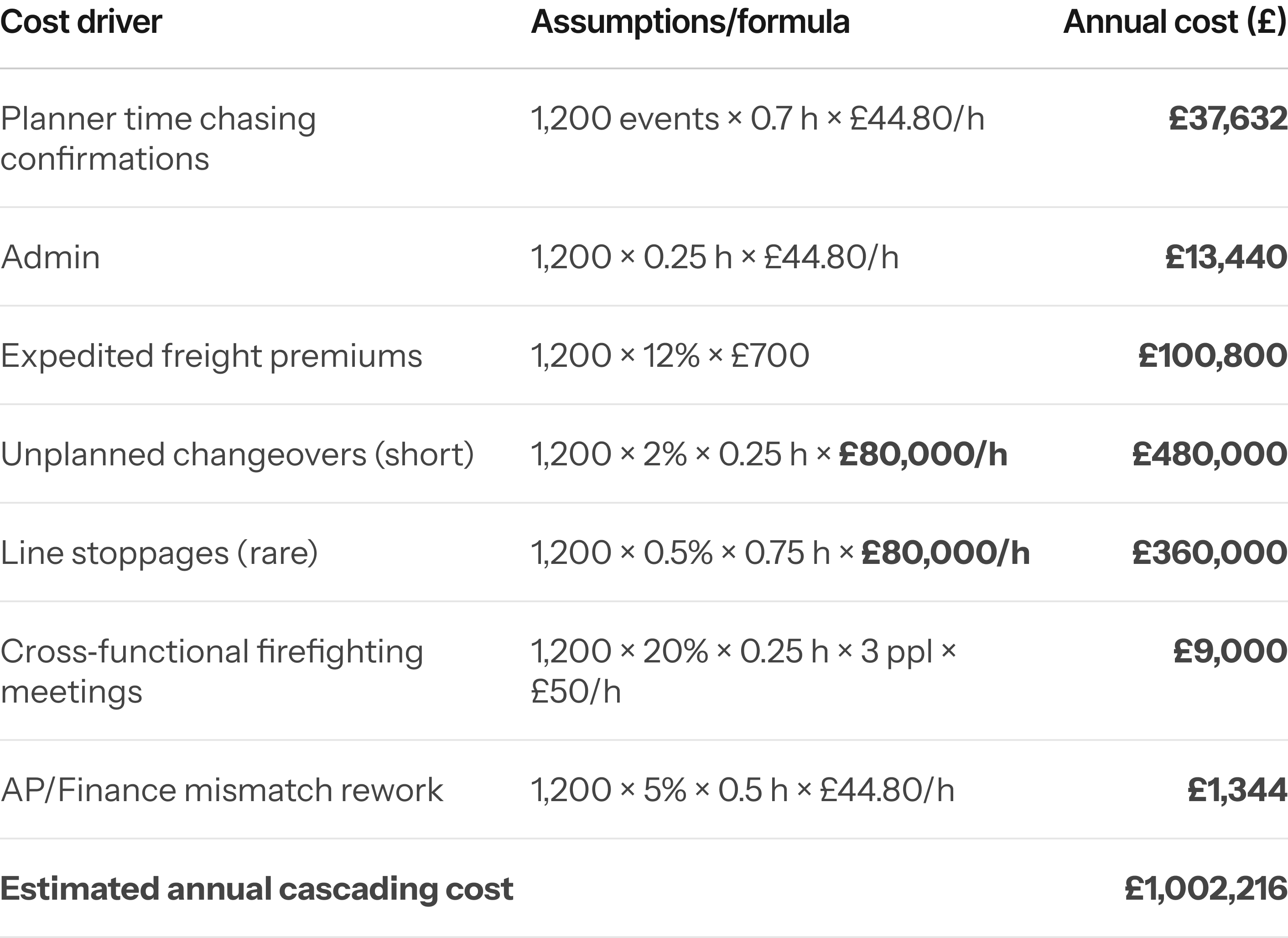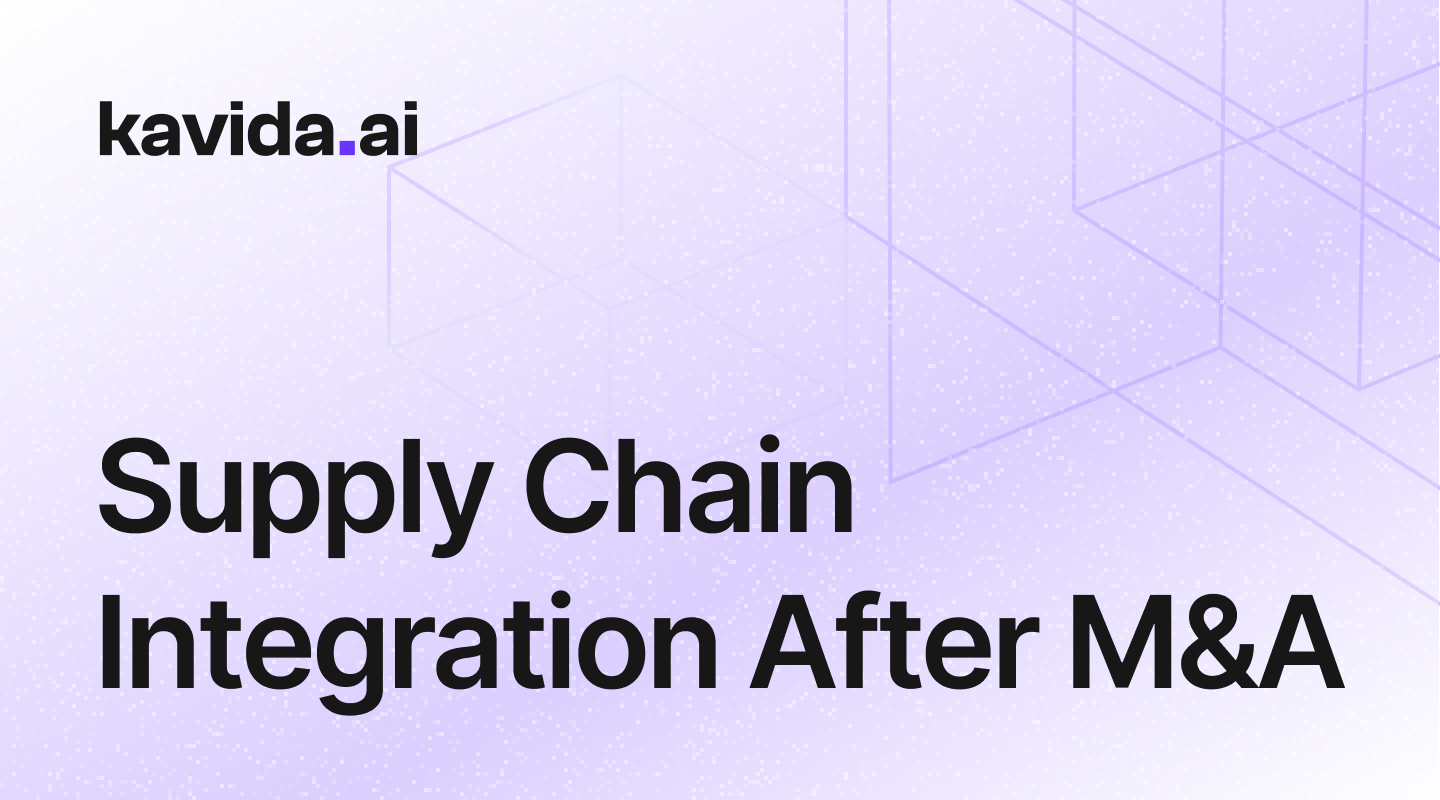
ANNOUNCEMENT
QAD Redzone acquires Kavida — our Agents have joined the Champion AI family

Discover how AI agents are reshaping the manufacturing operating model

Hi, I’m Alison!
Share your details, and I’ll give you a call in minutes to see how we can assist.

In manufacturing supply chains, an unconfirmed purchase order is a risk multiplier.
When a supplier hasn’t confirmed your requested delivery date, a slip doesn’t just delay the order by a few days — it can delay it by the entire lead time. That’s because without confirmation, you’re effectively starting the clock again when the order is eventually acknowledged.
In a high-volume production environment, those delays ripple through production, logistics, procurement, and customer commitments — creating cascading costs that often total seven figures a year.
The Cascading Cost Structure
Here’s how each cost bucket takes a hit when an unconfirmed order slips:
Production
Without confirmed delivery dates, materials can arrive late enough to stop or slow a line entirely. Production teams must resequence builds, change setups, and work around missing components. This creates:
- Downtime costs (labour and equipment idle).
- Lower throughput, reducing overall output for the period.
- Increased changeovers and inefficiency due to resequencing.
Logistics
Late confirmations often mean late shipments, forcing planners into reactive mode:
- Premium freight or hot-shot deliveries to make up lost time.
- Splitting shipments to keep some production running.
- Higher overall freight cost per unit.
Procurement
Unconfirmed orders that slip may require:
- Emergency buys from alternative suppliers at higher unit cost.
- Lost negotiated pricing on planned orders.
- Damage to supplier relationships from last-minute escalations.
Customer Commitments
Late material often means late finished goods:
- OTIF (On-Time-In-Full) penalties from key customers.
- Chargebacks or lost incentive payments.
- Missed sales revenue if customers cancel or switch to competitors.
- Long-term churn risk if delays become a pattern.
Operations Admin
Every late confirmation creates a wave of internal admin:
- Planners and buyers reworking schedules.
- Customer service teams managing expectations and complaints.
- Management time spent in escalation meetings.
- Additional reporting and firefighting effort.
The Million-Pound Math
Even a small percentage of unconfirmed POs can push annual costs into seven figures. Here’s an example model for a mid-sized manufacturer:

Cascading Cost Breakdown

Even modest assumptions push the total into the million-pound range. And this doesn’t account for lost customer goodwill or opportunity cost.
Why Unconfirmed Orders Happen
Unconfirmed POs are rarely the result of one big failure — they’re usually the by-product of everyday inefficiencies:
- Buyers juggling hundreds of open orders and chasing confirmations manually.
- Supplier replies buried in inboxes, missed or delayed due to time zones.
- No clear SLAs for acknowledgement, and no automated follow-up process.
- Language barriers slowing down communications.
- ERP systems that store dates but don’t proactively flag overdue confirmations.
The result: hundreds of orders that look “in progress” on paper, but in reality, have no fixed delivery date.
How to Fix It: Automate the Confirmation Loop
Manual chasing will never scale to match the volume and speed required in modern manufacturing. Automation removes the risk of POs falling through the cracks by:
Automated supplier follow-ups once a PO is raised.
Delayed confirmation alerts for orders approaching or past the confirm-by date.
Multilingual support to handle supplier communication in their native language.
ERP auto-updates so confirmed dates are updated automatically.
Unconfirmed orders aren’t small slips — they’re lead-time-sized delays that cascade into production stoppages, premium freight bills, customer penalties, and lost revenue. For many manufacturers, that adds up to over £1M per year in preventable cost.
By automating supplier follow-ups, alerts, and ERP updates — and keeping humans in the loop where it matters — you can turn a slow, reactive process into a fast, governed, measurable one. The result: fewer surprises, lower costs, and a supply chain that runs on confirmation, not assumption.
Related articles

Kavida Joins QAD: Meet Your New Agentic Champions
In manufacturing supply chains, an unconfirmed purchase order is a risk multiplier...

How Agents Unlock Supply Chain Integration After M&A
Mergers and acquisitions promise scale, efficiency, and new market reach — but in supply chains...

Microsoft Copilot Is Not an AI Strategy – How to Think About Horizontal vs Vertical AI Strategy
Enterprises that mistake Microsoft Copilot, or any other horizontal AI layer for a strategy, end up with...


